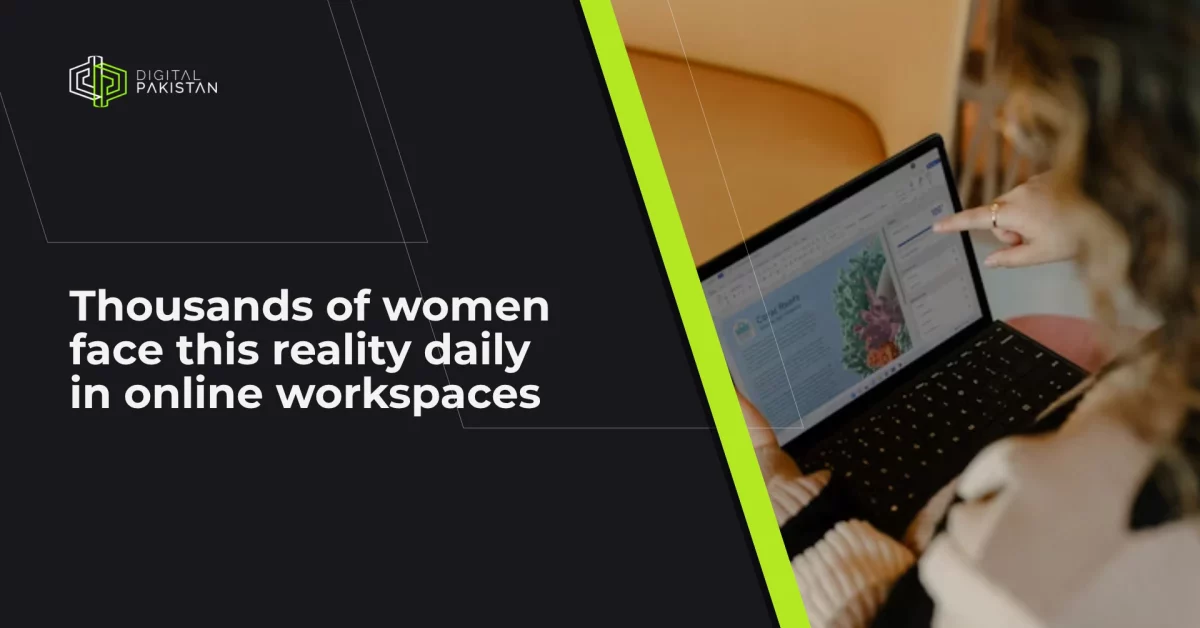
Binance Donates $150K for Pakistan Flood Relief
October 7, 2025
Pakistan Secures $3.5B for Reko Diq Progress
October 8, 2025Female Freelancers and Digital Safety: Tackling Harassment in Online Workspaces
In today’s contemporary global world where everything seems to be changing and evolving rapidly in the realms of technology, economy and international inter-dependence through trade and monetary funding. Moreover, employment opportunities worldwide are expanding beyond the confines of enclosed geographical spaces offering widespread opportunities to work remotely via online platforms. However, the greater concern that arises while articulating conspicuous growth in the virtual industry, is about cybersecurity and digital safety especially for women. On the outlook, taking a bird’s eye view it may seem that the modern world revolves around egalitarian values after centuries and decades of struggles to achieve gender equality nevertheless, as we begin to look deeper and observe closely women’s safety issues surface onboard. A world that outwardly believes that gender equality has been achieved and women are free to live on their own terms. Is it reality or just deception? Or maybe till date in present times we turn a blind eye to women’s issues. The very core and basic of them all is safety i.e on the streets and on digital forums that is a human right yet countless women feel violated, disrespected and harassed there. So, have we really moved on and progressed as a nation where half of the population feels deprived of its human rights?
The rise of freelancing networks has created unprecedented opportunities for women globally, but especially in developing countries where mainstream employment opportunities might be limited by mobility restrictions, social barriers, or cultural restrictions. For many women, virtual workplaces open up opportunities for economic empowerment, flexibility, and access to careers that would be out of reach without them. But with this development there also continues a poorly addressed crisis: the persistence of harassment, exploitation, and safety risks in online spaces.
Women freelancers suffer disproportionately from unwanted communications, indecent proposals, and threats from clients or other users on the web. In most instances, the blurring of professional and personal life renders women especially at risk from online harassment. The anonymity granted by virtual media and inadequate reporting and redressal mechanisms often gives confidence to the violator. Several women freelancers refrain from reporting harassment out of fear of alienating themselves from clients, harming their professional image, or finding little support themselves from platform managers. This refrain in turn perpetuates a culture of exploitation and emotional harassment.
The question at hand runs deeper than safety, and it runs deeper than systemic inequality as well. Cybersecurity mechanisms, for the most part, have a gender-blind approach, which does not adequately treat the complex risks that women must navigate online. Many platforms have a lack of gender-sensitive policy or evince inadequate investment in AI-moderation systems able to screen abusive speech and alert improper client misconduct. Online digital literacy programs also often focus on technical proficiency relevant to freelancing and at the same time ignore the need to train women on their online rights, data protection, as well as ways of protecting themselves from online exploiters.
Overcoming this challenge requires a multi-stakeholder response. Platforms for freelancing should strengthen their protection mechanisms by introducing open reporting systems, having zero-tolerance policies for harassment, and conducting psychological support services for the victims. In addition to this, governments and policymakers must integrate digital safety at the national level in cybersecurity policies, giving special consideration to marginalized and women’s communities. Non-governmental and women’s activity organizations can also have a central role in raising the issues at various forums, organizing digital safety workshops, and providing legal aid services for women facing online harassment.
At the individual level, it is also important that women freelancers engage in digital hygiene by having safe passwords, activating two-factor authentication, making a distinct separation between professional and private accounts, and having evident professional boundaries with clients. Further, peer support groups and mentoring programs organized for women freelancers can also function as safe spaces for exchanging experiences, tips, and means of dealing with harassment.
Ultimately, effective empowerment in digital economies will not be achieved unless women have the ability to labor without restrictions and with safety within virtual spaces. Stopping harassment and securing digital safety does extend beyond protecting women; it involves strengthening the underlying foundations of distant labor and digital innovation. An international working force that is respectful, inclusive, and safe for workers of all genders has the ability to greatly enable sustainable development within the interconnected global world that we presently inhabit.





